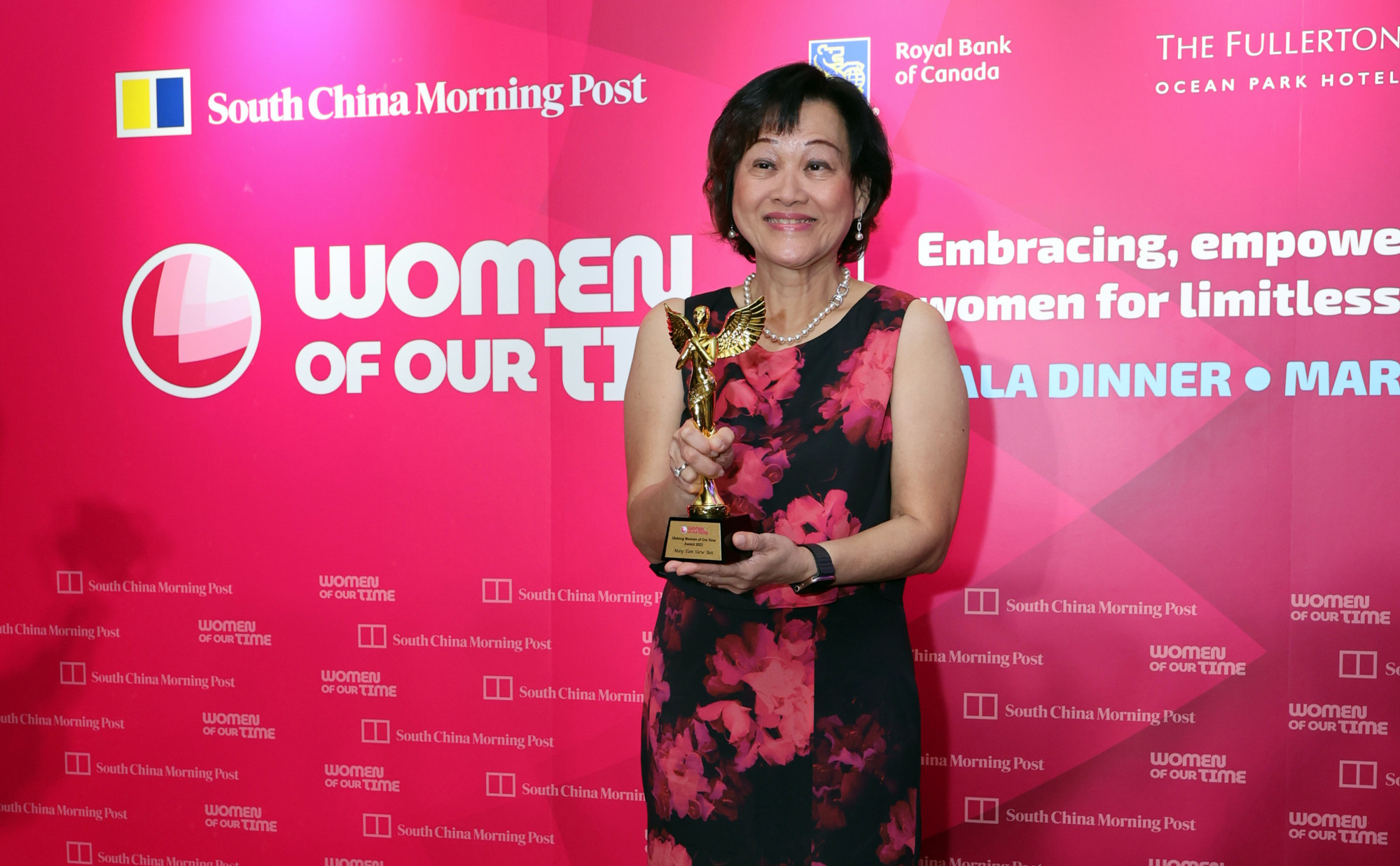
Lunar: Malaysia’s May Tan looks back on trailblazing banking career in Hong Kong
- Lunar is a weekly curated newsletter that highlights stories relating to women and gender equality in the Asia-Pacific
- In this edition, veteran Hong Kong-based banker May Tan tells us about breaking the glass ceiling, male allies and helping to bridge the gender gap in boardrooms
When May Tan was tapped by her then-employer, British investment bank Cazenove, to relocate from England to work in Hong Kong in 1984, she was not thrilled.
The firm had its eye on gaining a foothold in Asia and offered Tan, a Malaysia-born chartered accountant, a secondment in the city to do equity research.
Hong Kong’s economy then was in turmoil, ahead of the 1997 handover from Britain to Beijing. Tan, who had never been to the city, described the situation as “chaotic”.
“Deng Xiaoping and Margaret Thatcher were in discussions on the future of the handover; talks were breaking down. Amid the negotiations, the Hong Kong currency fell like a tonne of bricks,” she said. “It wasn’t a very impressive place when I arrived.”

But the handover came and went, and Hong Kong flourished as a financial hub.
“I rose up the ranks at Cazenove, built up the Asia business. I stayed on for 25 years. I built one of the largest independent investment banking powerhouses,” said Tan.
She was appointed CEO of Cazenove Asia, crediting luck, hard work and timing as key to her success.
“My team not only built the office in Hong Kong, but in Singapore, India, Tokyo, Shanghai, Beijing. Economies in Asia were growing so rapidly in the 1980s and 90s,” she said.
Tan’s achievements led to her becoming Cazenove’s first female and Asian partner. “It was recognition, they said, for building a business out of nothing in Asia.”
Being a first woman in anything; some men up the ladder had to have helped you along the way
But breaking the glass ceiling was a lonely experience.
“Firstly, I did not have any female role models. So I did not know what to expect. Secondly, with 79 other partners who were white British men, I wasn’t sure I fit in. These were men who went to the same schools – Eton, Harrow, Oxbridge,” Tan said. “I knew that as a partner, you had a seat at the table. Still, you were always a little afraid as to whether you’d feel comfortable, whether you’d really have a say.”
But upon reflection, Tan began to see the promotion as an “inflection point”. “Making partner really encouraged me. Suddenly, anything felt possible,” she said.
Hong Kong firms ‘must do more’ to get women onto their boards of directors
Tan acknowledged that male allies played a part in her career trajectory.
“Being a first woman in anything; some men up the ladder had to have helped you along the way. For example, my old boss who put up my name for partnership,” she said.
“It took me longer than a lot of my male colleagues to make partner. He told me candidly later that they were worried; they never had a woman partner before. They were concerned one woman would change the cultural dynamics of the partners. So they parked it for a while, and it took three years for me to finally make partner,” she said. “But still if my old boss hadn’t pushed for it, it wouldn’t have happened.”
“That’s probably my career highlight. One can become CEO, but you don’t often get to sign a bank note.”
The future is female? A third of Hong Kong companies still have all-male boards
After retiring, she set in motion her plan to widen female representation at the executive and board level in the city. While Tan was able to influence decision-makers as a member on several boards, she faced resistance when she advocated for a gender quota in boardrooms.
The pushback led her to launch the ACcelerate initiative to build a pipeline of talent in Hong Kong, equipping women in senior roles with the leadership and interpersonal skills needed to rise to the C-suite and board level.
What Tan thought would be a one-off programme in 2020 is still going strong, with organisations including HSBC, Standard Chartered, Manulife, Hang Lung Properties, and Hong Kong’s Securities and Futures Commission among the participants.
“With ACcelerate, I work with corporates and they nominate the women talent they want to retain and nurture. So far, we have had about 100 women come through,” she said. “I’m feeling good that this is working out and making an impact.”
Stories worth sharing

Recipe for success
‘Job slave’ calendar

Fashioning a future
Labour imbalance

Online attacks
Work in progress
‘A lot of love and hope’

